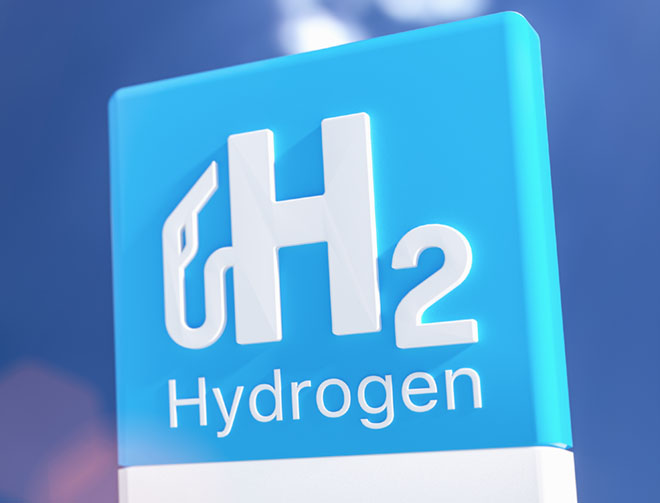The latest battle in the War of the Energy Storage Media has broken out in Germany, where the Volkswagen Group and an auto industry lobbying group (the German Association of the Automotive Industry, or VDA) are at daggers drawn over the government’s proposed plan to implement the EU’s renewable energy directive.
Germany’s Federal Ministry of the Environment (BMU) has proposed a plan to establish a market in renewable energy credits for transport, modeled on a similar plan in France and existing electricity credit markets in the Netherlands and California. The market would allow competition among electricity, biofuels and hydrogen as green transport fuels. The plan also includes a 2% e-fuels mandate for aviation, to be met by 2030. (The term e-fuel, or electrofuel, refers to hydrogen and other synthetic fuels such as butanol and biodiesel. Some foresee that excess renewable energy could be used to generate green hydrogen and/or synthetic fuels, to be used in industrial processes and/or heavy-duty vehicles.)
The VDA rejected the BMU’s plan, calling instead for hydrogen and e-fuels to be mandated for road transport. The VDA said it wants to see a much higher usage of hydrogen and synthetic fuels than envisaged in the BMU’s proposal, and that it foresees the use of hydrogen “in all transport applications.”
The VDA’s biggest member, Volkswagen, rejected the VDA’s rejection, and called the use of hydrogen in cars and trucks “nonsensical.” “The so-called potential of these alternatives for liquid fuels is…massively overestimated,” said VW, adding that the production of synthetic fuels from surplus renewable energy would be “complex, cost-intensive [and] not very climate-efficient.”
To an outsider, the split between VW and the VDA seems puzzling. Two of Germany’s three major automakers have already foresworn the use of hydrogen in cars. In March, Volkswagen explained in detail why it decided that batteries are a superior solution for passenger cars. Daimler has ended its development of fuel cell-powered passenger cars, but continues to develop fuel cells for applications in heavy-duty vehicles. BMW continues to research fuel cells.
VDA members include not only the grosse drei German automakers, but also international component suppliers and foreign-owned carmakers such as Opel.
Jekaterina Boening, Senior Policy Manager at Transport & Environment, said, “The VDA is living in a fantasy world and has just been called out by its biggest member. Its proposals for massive amounts of hydrogen and e-fuels to be used by cars and trucks are nonsensical indeed. It won’t happen, and is simply meant to confuse politicians. The government needs to call their bluff. Pie-in-the-sky e-fuel schemes aren’t going to make the electric car revolution go away.”
Auto industry consultant James Carter weighed in on VW’s side. “Even if hydrogen retail pricing was to drop by 80%, it still can’t compete with EVs, and a green H2-powered car will always use 3x more energy and create 3x more emissions than an EV off the same grid,” he wrote in a LinkedIn post. “What’s more, no company is taking the lead with funding H2 fueling infrastructure the way Tesla did [with] EV charging.”
In an earlier post, Carter posited that, as 96% of current hydrogen is made from fossil fuels (grey hydrogen and blue hydrogen), it should actually be considered a form of fossil fuel. Hydrogen opponents tend to argue that the push to use hydrogen in vehicles is fueled by politics and the interests of the oil industry. “Let’s just follow the science and continue to use hydrogen where it is needed most—in industrial processes, well away from anything with wheels,” writes Carter.
Less controversially, the BMU’s proposal would end incentives for the use of biodiesel made from palm oil by 2026—four years ahead of the EU’s phase-out date. Parliaments in Denmark, France and Italy recently made similar moves toward ending subsidies for biofuels made from palm and soy. According to the EU Commission, biodiesel made from soy is two times worse for the climate than regular diesel, and palm oil is three times worse, when indirect emissions are accounted for. Palm oil is also a major driver of tropical deforestation.
Source: Transport & Environment




















































